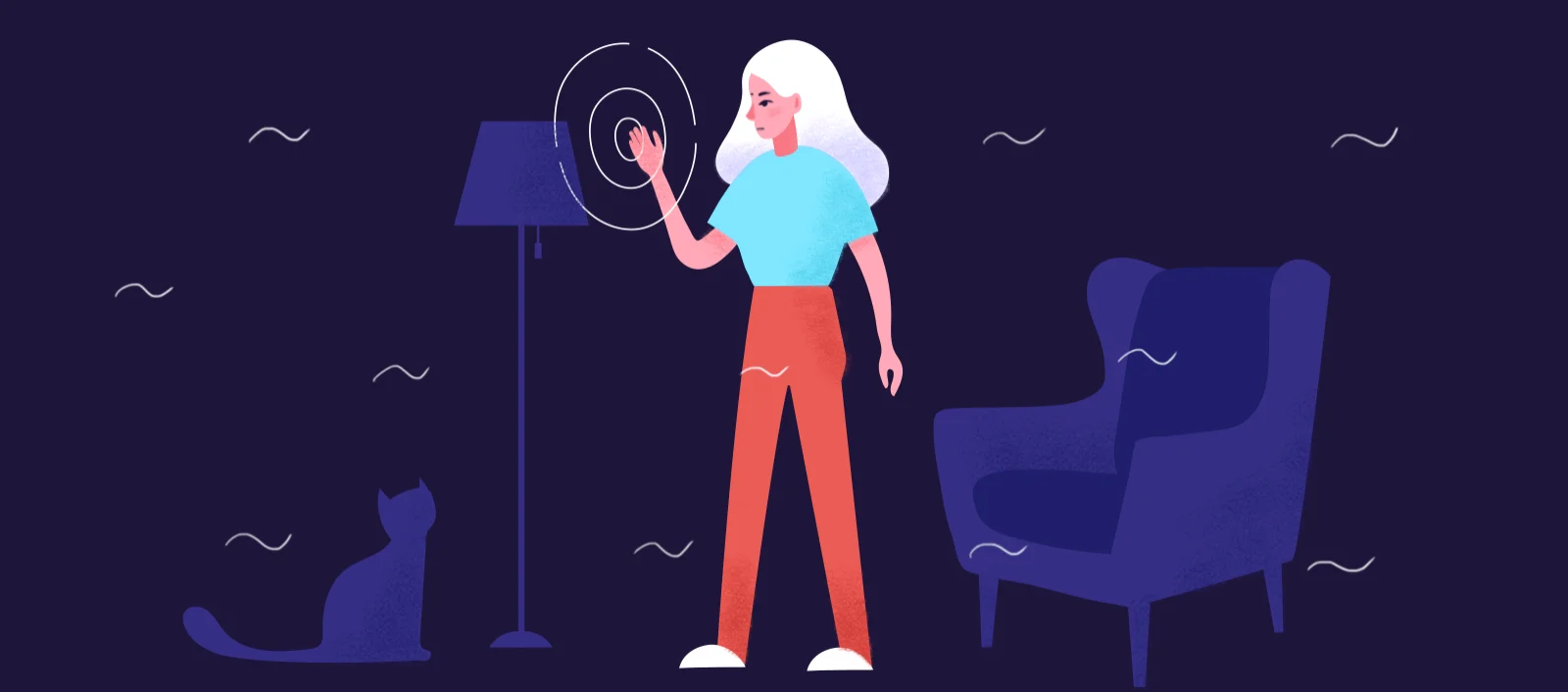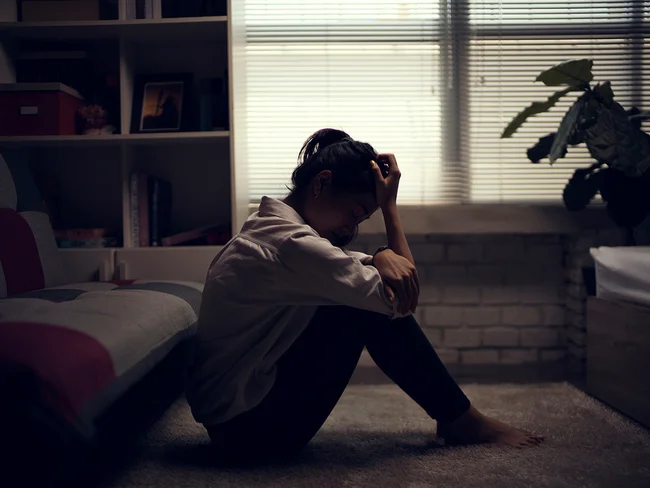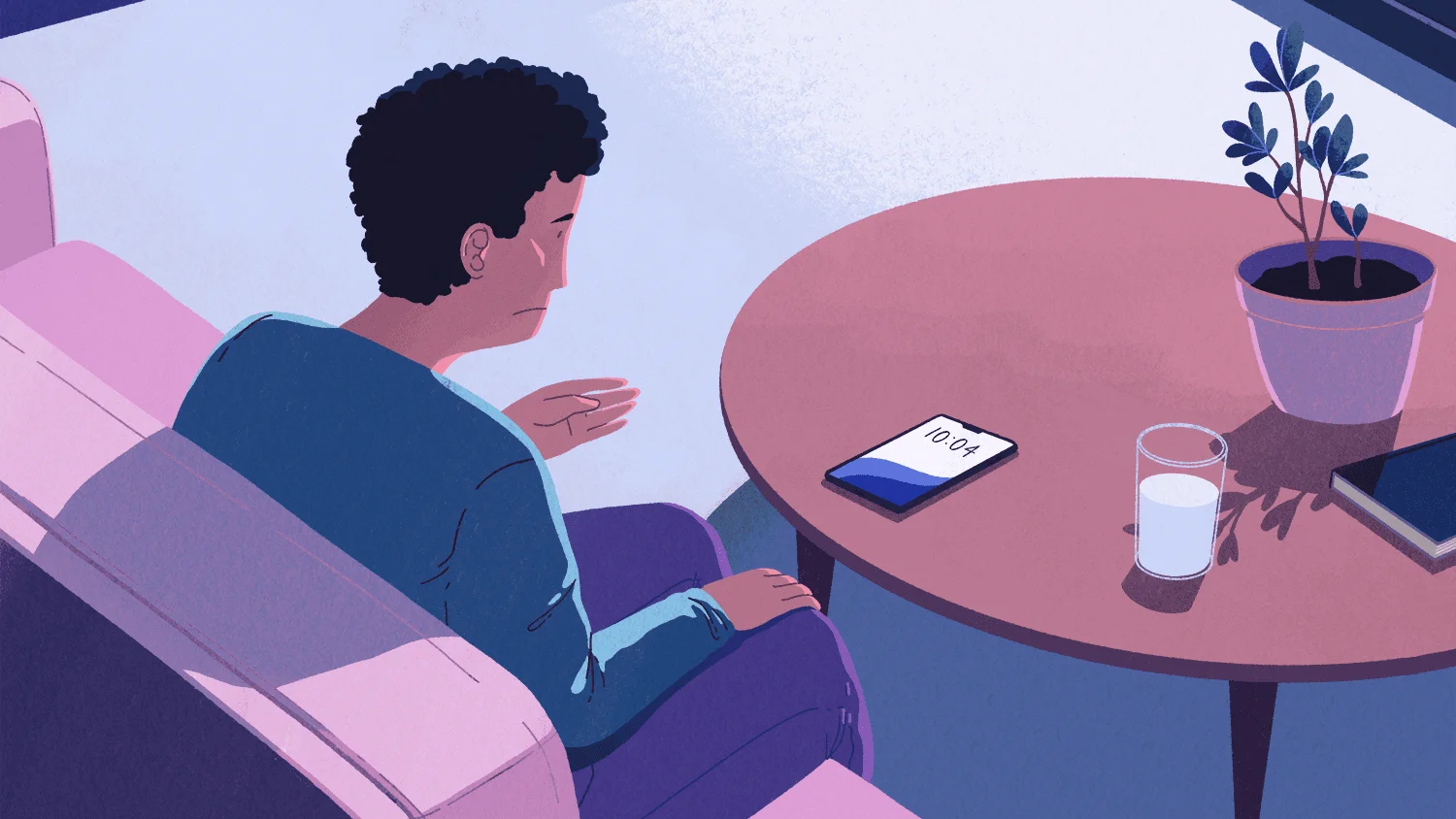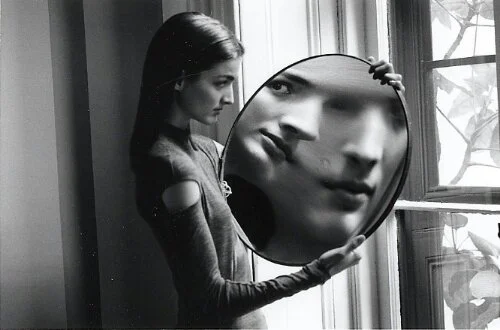Do you ever feel like you’re not really living in the present? That your life is just a dream and you’ll wake up any moment? If so, then you are experiencing distorted perception. This phenomenon is characterized by a disconnection from reality, usually caused by stress or trauma. In this blog post, we will discuss the different types of distorted perception. We will discuss how to deal with them.
Contents
What Is Distorted Perception?
 Distorted perception is a type of perceptual distortion in which the individual perceives objects, people, or situations in a way that is not consistent with reality. For example, someone with distorted perception may see things that are not there, or they may interpret situations in a way that is not accurate. This also can include perceiving people in a negative way of seeing oneself in a negative light.
Distorted perception is a type of perceptual distortion in which the individual perceives objects, people, or situations in a way that is not consistent with reality. For example, someone with distorted perception may see things that are not there, or they may interpret situations in a way that is not accurate. This also can include perceiving people in a negative way of seeing oneself in a negative light.
There are many different types of distorted perception. This can be the result of a variety of factors including mental health conditions, life experiences, and medication. It is important to note that not everyone who experiences distorted perception will have a mental health condition – some people may simply have had a difficult life experience that has led to their distortion.
Types of Distorted Perception

There are many different types of distorted perception. There are many different categories:
Visual Distortions
This includes seeing things that are not there or seeing objects in a way that is not accurate. For example, someone with visual distortion may see things as being bigger or smaller than they actually are. They may see colors differently than they have to see. It also can include seeing things that are not there, such as hallucinations.
Auditory Distortions
This includes hearing sounds or voices that are not actually present. For example, someone with auditory distortion may hear a voice telling them to do something. This is even though no voice is actually there. It also can include a distorted perception of what people really say. For example, you may think your friend said something means about you when in reality it was a joke. They had no intention of hurting your feelings at all.
Olfactory Distortions
This includes smelling odors that aren’t there or having an altered sense of smell. For example, someone with olfactory distortion may think something smells bad when it doesn’t actually have an odor at all! This type of distortion is common in schizophrenia and other psychotic disorders but can occur without any mental illness present (such as after taking drugs).
Tactile Distortions
This includes feeling things that aren’t there or having an altered sense of touch. For example, someone with tactile distortion might feel like they are being touched when no one is actually touching them physically; this could also happen if they were wearing clothes made out of synthetic fibers instead of natural ones since synthetics do not conduct heat well so their skin would still be cold even though nothing was pressing against it directly from the outside.
Gustatory Distortions
This includes having an altered sense of taste. For example, someone with gustatory distortion might think something tastes bad when it doesn’t actually have a flavor or they might taste things differently than other people do. It may also include feeling like food has no flavor at all.
Signs of Distorted Perception

There are many signs of distorted perception, and they can vary depending on the person’s individual experiences. However, some common signs of distorted perception include:
Hallucinations
Hallucinations are one of the most common signs of perceptual distortion, and they can involve seeing, hearing, smelling, tasting, or feeling things that are not actually there.
Delusions
Delusions are false beliefs that are firmly held even though there is evidence to the contrary. For example, someone with a delusion may believe that they are being followed by the police even when there is no evidence to support this belief.
Negative Self-Perception
People who experience distorted perceptions often have a negative view of themselves and see themselves in a negative light. This can lead to feelings of worthlessness, hopelessness, and despair.
Inaccurate Interpretation of Situations
People who experience distorted perceptions often misinterpret situations in a way that is not accurate. This can lead to problems in their relationships with others and difficulties functioning in everyday life.
Mood Changes
People who experience distorted perceptions often have changes in their mood, which can include feeling sad, angry, or anxious for no reason.
Changes in Behavior
People who experience distorted perceptions may also change the way they behave, such as becoming more reclusive or isolating themselves from friends and family. They may also become more agitated or aggressive. It also may be difficult for them to make decisions because they don’t trust their own perceptions anymore.
Causes of Distorted Perception

There are many causes of distorted perception, and they can be broken down into the following categories:
Mental Health Conditions
Many mental health conditions can cause distortion in your senses. For example, schizophrenia is characterized by hallucinations (visual), delusions (auditory), and disorganized speech or behavior that may lead to difficulty functioning on a daily basis if not treated appropriately with medication management from professionals such as psychiatrists or psychologists who specialize in this area of medicine. People suffering from depression often experience gustatory changes because they don’t feel hungry anymore which makes them lose weight rapidly over time due to lack of nourishment.
Bipolar disorder patients sometimes have auditory hallucinations where they can hear voices that aren’t there, and post-traumatic stress disorder (PTSD) patients may experience flashbacks which are essentially visual hallucinations of the event(s) that caused them trauma.
Life Experiences
Distorted perception can also be a result of difficult life experiences. This could include things such as being in a car accident, experiencing abuse or neglect as a child, going through a natural disaster, or witnessing violence. These events can cause what is known as “psychological trauma” which is basically an emotional response to something that is too much for someone to handle and results in long-term negative effects on their mental health. Oftentimes people who have experienced psychological trauma will start to exhibit symptoms of post-traumatic stress disorder (PTSD) such as flashbacks, intrusive thoughts, and hypervigilance.
Drugs and Alcohol
Taking drugs or drinking alcohol can also cause distorted perception. This is because when you’re under the influence of these substances your brain is not working normally so it can be harder to differentiate between what is real and what isn’t. For example, if you take hallucinogenic drugs you may see things that aren’t there or experience auditory distortion where you hear voices even though no one is talking.
Sensory Processing Disorders
People with sensory processing disorders sometimes have a hard time making sense of the information their senses are sending them which can lead to distorted perception. For instance, someone who has trouble processing tactile information might feel like objects are touching them when they really aren’t or that their clothes don’t fit right because it doesn’t feel good against their skin; someone who experiences gustatory distortion may think certain foods taste bad even though nothing is wrong with them at all!
Impacts of Distorted Perception

There are many impacts of distorted perception. Some of these are:
Sadness
Sadness is a common feeling people with distorted perceptions experience. They may feel sad because they know that others don’t believe what they are saying which makes them feel isolated and alone as well as confused by their own thoughts or feelings on things happening around them. This can also lead to depression if left untreated over time since these individuals often have difficulty functioning in daily life due to symptoms such as hallucinations, delusions, and disorganized speech or behavior which results from the medication prescribed for treating their condition(s).
Anxiety
People who have distorted perception may start feeling anxious about everything all of the sudden without any warning signs beforehand (such as panic attacks) when this wasn’t an issue before experiencing cognitive distortion; it could also stem from being worried about what others might think if they told them their experiences were real but not everyone believes this which causes more stress on top of whatever else is going wrong at that moment in time.
Confusion
The person may feel confused by their own thoughts or feelings on things happening around them because it’s hard to distinguish reality from fantasy when experiencing cognitive distortion; this can lead to social isolation as well other mental health issues like anxiety and depression due to low self-esteem. Some individuals with distorted perception may even start having delusions where they believe something that isn’t true (such as thinking someone wants them dead) so there could also be an element of paranoia involved here too!
Suicidal Thoughts
Unfortunately, sometimes people with distorted perceptions will start having suicidal thoughts especially if they don’t feel like anyone understands what they’re going through or how much pain they are in; this is because their mental state has become so cloudy that suicide seems like the only way out. If you know someone who is exhibiting these signs please reach out will have suicidal thoughts due to a lack of hope for their future or feeling like there’s nothing left in life worth living for. This can lead to attempts at self-harm or even successful suicide if not treated properly by professionals with experience helping people through these difficult times and situations.
Dealing With Distorted Perception

There are a few different ways to deal with distorted perception. Some of these are:
Get Away
Your first step should be getting away from whatever is causing the distortion. If you can’t do it alone, find someone who will help you or get professional assistance in doing so as soon as possible before anything worse happens such as harm coming to yourself or others around them due
Get Help
Sometimes people just need a little bit of extra support when they are dealing with distorted perception. It could be that their friends and family don’t understand what’s going on for them which makes things even harder! So having someone who does might make all the difference during this time in your life – whether it comes from counselors at school (or work!), therapists online/offline; there are lots of options available depending on where you live, what your circumstances are like right now.
Talk About It with Someone You Trust
Sometimes people just need to talk about their feelings in order to feel better; other times they don’t even realize what they’re going through until someone else points it out and opens up a dialogue between them so that both parties can listen without judgment while also learning more information on how best handle these situations as well take care themselves when dealing with distorted perception.
Be Kind To Yourself
The most important thing when dealing with distorted perception is being kind to yourself – if something isn’t working for you then try another option or take some time off from whatever may be causing the problem at hand. It could also help if you talk about it with loved ones so they know what’s going on too!
Take Care of Yourself
Distorted perception can take a lot out of someone so it’s important that you make sure to take care of yourself in terms of eating well, getting enough sleep, and exercising. Doing things you enjoy (outside of whatever is causing the distortion) can also help as it gives your mind a break from what might be stressing you out constantly; this could be something like reading, going for walks, painting/drawing, listening to music, etc.
Avoid Stimulants
You should also stay away from stimulants such as caffeine or nicotine as they have been shown to worsen the effects of distorted perception, especially when combined with certain medications like antidepressants which may cause increased anxiety levels; this could potentially lead someone down a path towards suicidal ideation so be careful.
Always consult your doctor before taking any medication for anything other than what was intended by its manufacturer (i.e., sleeping pills prescribed for insomnia). Additionally, keep track of how many times per week you are using these substances. This is because overuse might increase their side effects. This is while decreasing their effectiveness in treating depression/anxiety-related problems at hand.
Get Enough Sleep
If you’re not getting enough sleep, it can make the distorted perception worse. Always try to get at least seven hours of restful sleep each night. This is because this will help keep your mind clear and focused on what needs to be done during daytime activities. These are such as work or schoolwork assignments that need completion before deadlines hit. Also if they cause anxiety while awake then take them up with someone else who feels comfortable talking about these issues like a therapist or even just friends/family members. This is so that way you don’t have any more concerns.
Conclusion
Distorted perception is when someone’s thoughts and feelings are distorted in such a way that they become overly exaggerated or completely false. This can lead to problems with self-esteem, anxiety disorders like PTSD (posttraumatic stress disorder), depression, paranoia; other mental health issues as well suicidal
It is important to take care of yourself when you have distorted perceptions. This is because it can be very difficult on your body and mind. If this happens make sure that you are eating well, getting enough sleep each night so that your brain has time to recover from whatever may be causing the distortion. Always remember though: there will always be people out there who understand what you’re going through no matter how alone feel.
A Word From Therapy Mantra
Your mental health — your psychological, emotional, and social well-being — has an impact on every aspect of your life. Positive mental health essentially allows you to effectively deal with life’s everyday challenges.
At Mantra Care, we have a team of therapists who provide affordable online therapy to assist you with issues such as depression, anxiety, stress, relationship, OCD, LGBTQ, and PTSD. You can take our mental health test. You can also book a free therapy or download our free Android or iOS app.


